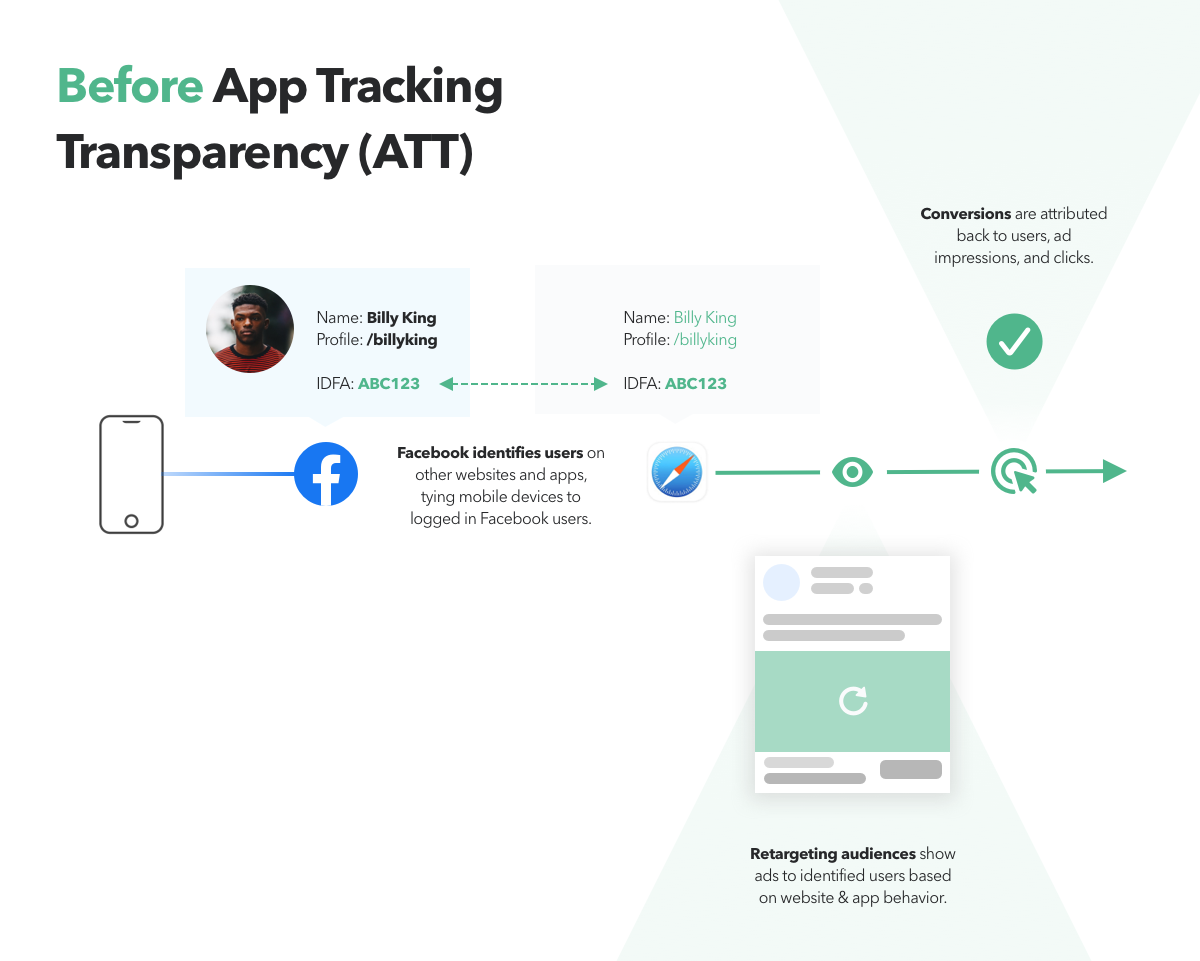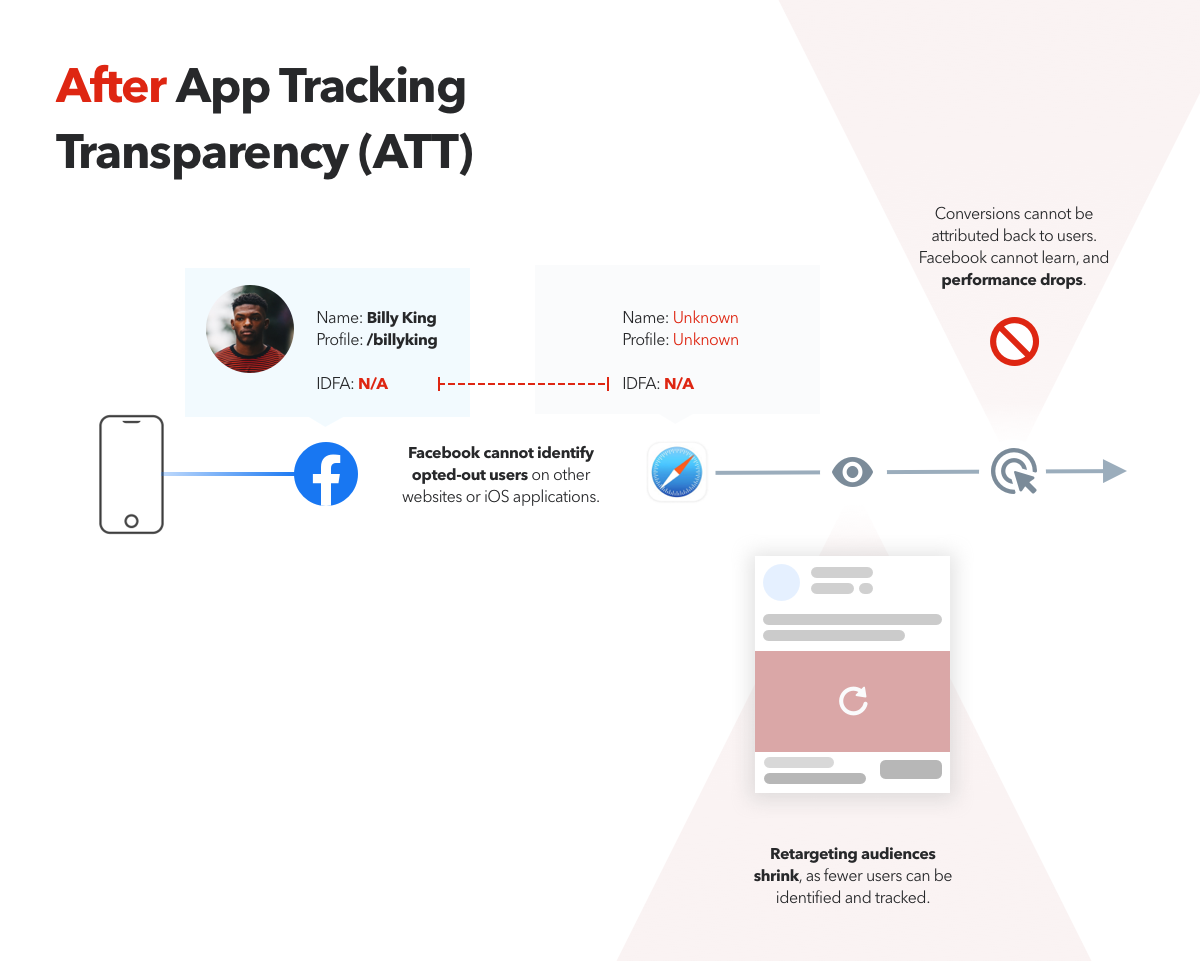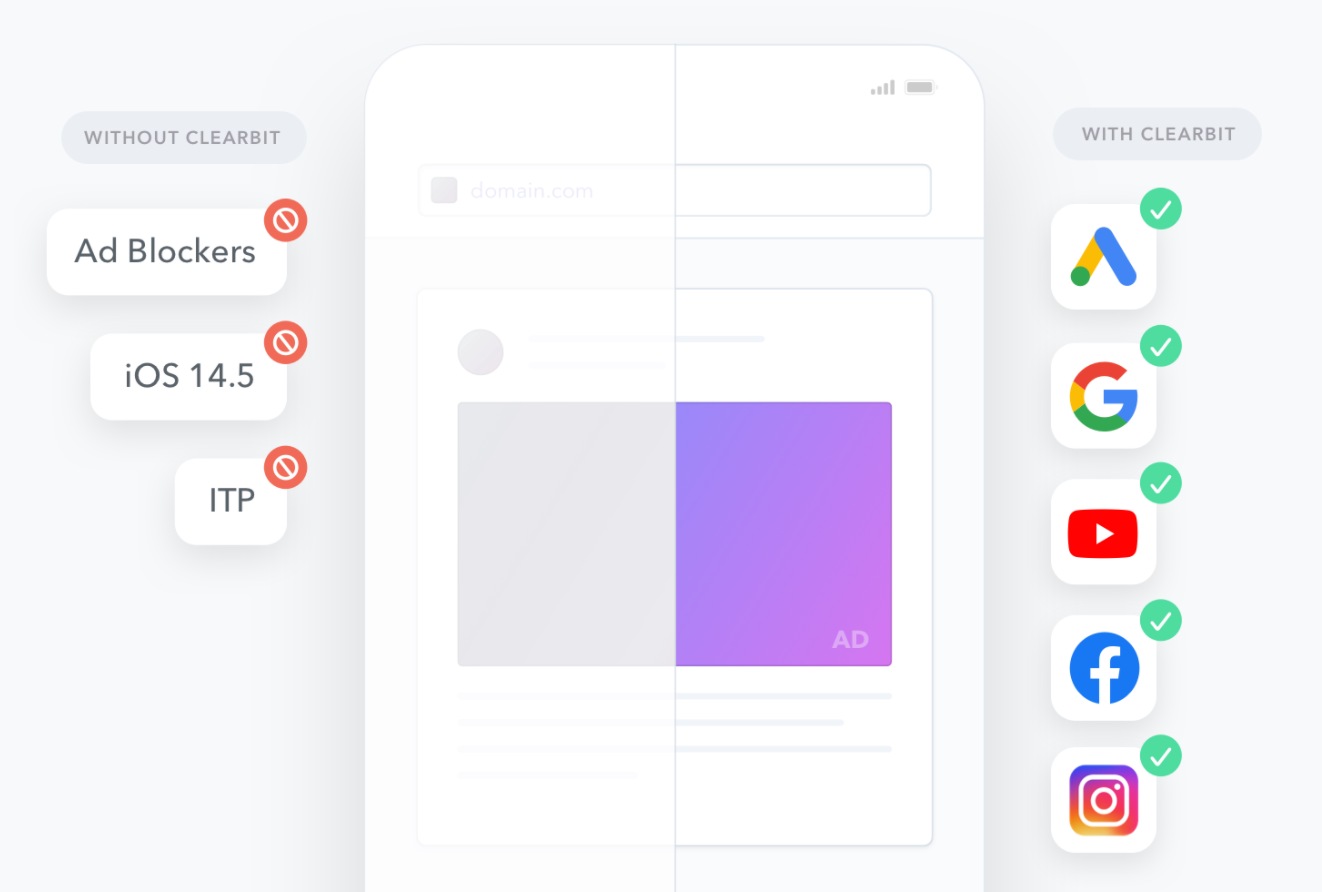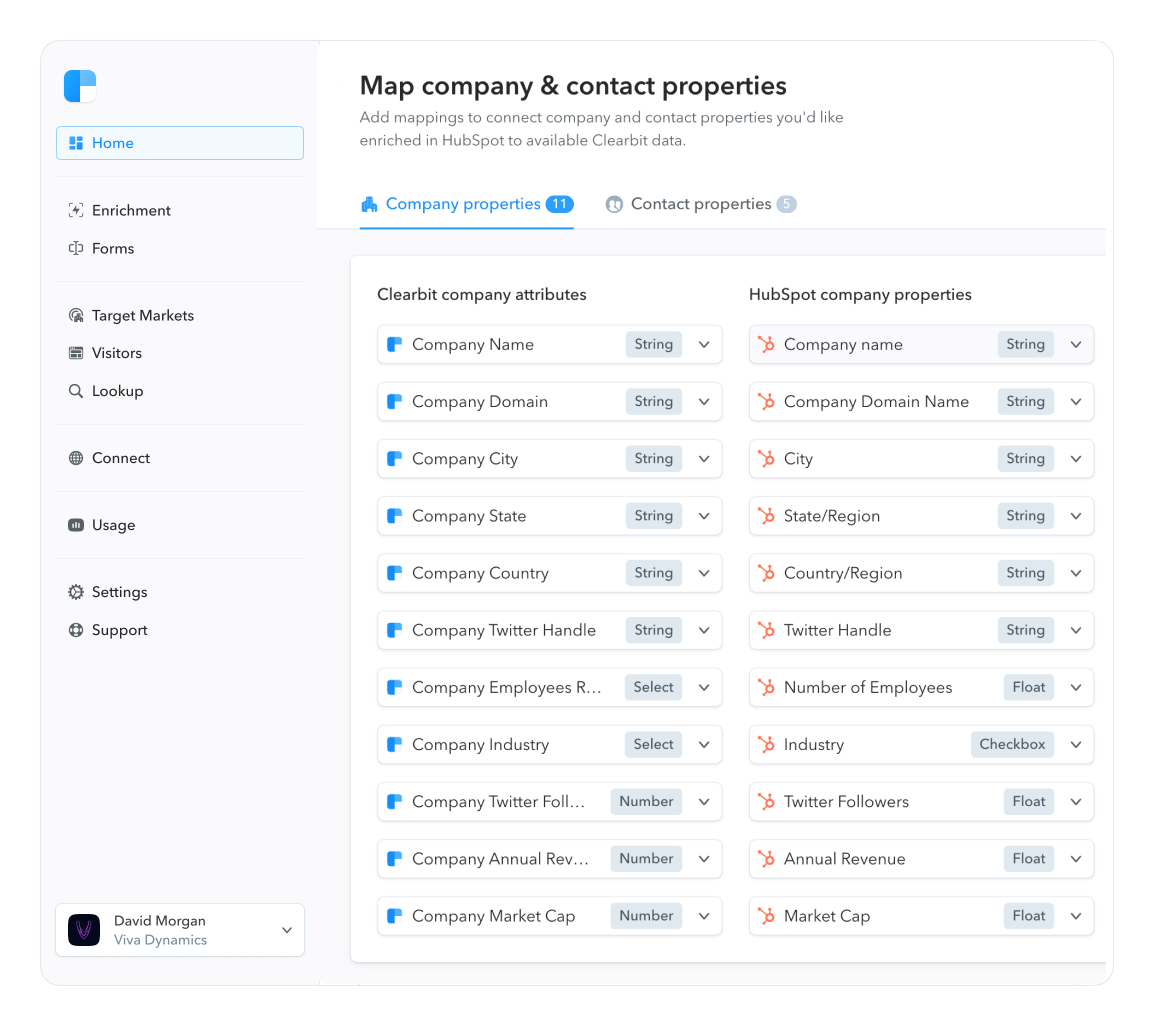How Clearbit Conversions protects your brand from iOS 14.5 (and the end of third-party cookies)
On April 26th, 2021 Apple rolled out App Tracking Transparency (ATT). This new feature prompts iPhone and iPad users to explicitly opt in or opt out of allowing apps to track them across websites.
If a user opts out of tracking, Apple will block apps from collecting the IDFA identifier, which platforms like Facebook use to track users, identify them, and retarget them with ads.
The update is a win for user privacy, but if you're not prepared, will also hurt your ad performance.
Read on to learn how why traditional methods of tracking conversions online have become extremely unreliable — or skip ahead to how Clearbit Conversions helps protect your advertising performance on Facebook and Google.
What is IDFA, and why does it matter?
IDFA (Identifier for Advertisers) is a unique identifier for mobile devices that Apple provides apps. Platforms like Facebook use IDFA to do three things:
-
Predict who is likely to convert, and show those people your ads, by identifying users on other websites, and analyzing their behavior (like which pages they visit, and what actions they take). This is the recipe Facebook has used for a long time to serve advertisers lots of conversions at a low cost.
-
Retarget to their website visitors — by understanding which devices people use to log into Facebook, and identify these users as they browse the web (by matching the user to IDFA and other device identifiers).
-
Attribute conversions back to ad clicks (and views), so that advertisers can measure the effectiveness of their ads on a user level across mobile devices. Like retargeting, Facebook uses identifiers like IDFA to tie the anonymous conversion to a Facebook profile.

What does this mean for B2B advertisers?
iOS devices account for 60% of US mobile devices. 2 billion iOS devices have been sold worldwide. The impact of these updates will be felt by many an advertiser ... unless we prepare!
Specifically, B2B advertisers need to be prepare for three risks:
1. Conversion data could be lost
Conversion data sent via 3rd party cookies (like the Facebook pixel) will be blocked for tens of millions of users. When users opt out, Apple will make it very difficult for the Facebook pixel to identify those users and measure conversions.
Ultimately, this means less attribution, and fewer signals that Facebook can use to optimize their ad delivery.
2. Retargeting audiences will shrink
The update will block access to Apple's IDFA, a unique identifier they used to provide to platforms like Facebook to identify users, tie them back to specific Facebook profiles, and retarget those Facebook users across different devices.
3. Lookalike audience performance may suffer
Facebook relies on behavioral data to create strong lookalikes (e.g., people like your best customers, with similar behavioral patterns). Losing those data signals may impact their ability to serve high-quality lookalike audiences.

Apple isn't the only one killing cookies. Ad blockers, browsers, and Google are, too. Without conversion data, your performance drops and pipeline suffers as targeting becomes less effective.
Protect your ad performance with Clearbit Conversions

Clearbit Conversions provides access to new offline conversion tracking methods that remove the need for cookies. It improves data accuracy, protects ad performance, and can actually improve lead quality.
For the more technical advertisers: Conversions offers an out-of-the-box integration with Facebook's Conversions API (CAPI) and Google Offline Conversion Tracking (OCT). These are now the recommended tracking methods for B2B advertisers:
- Facebook explains how their CAPI cut HoneyBook's acquisition costs in half
- Google's OCT grew Gtmhub's self-service pipeline by more than 400%.
How Clearbit Conversions works
Conversions sends your conversion data server-side to Facebook and Google, bypassing cookie-blocking technology from ad blockers, browser limitations, or operating system restrictions like iOS 14.5.
Each conversion event is enriched with critical metadata that Facebook and Google use to match conversion events back to their users. The improvement in data quality boosts Facebook and Google's machine learning capabilities, training their targeting algorithms to convert the leads that matter and avoid the ones that don’t.
Implementation is easy and customizable, using data from your CRM, marketing automation platform, and Clearbit enrichment. With a few small modifications to your optimization strategy, that data can be used to improve lead quality and increase ROAS — all while protecting your brand from the changes in iOS 14.5 and demise of third-party cookies.

